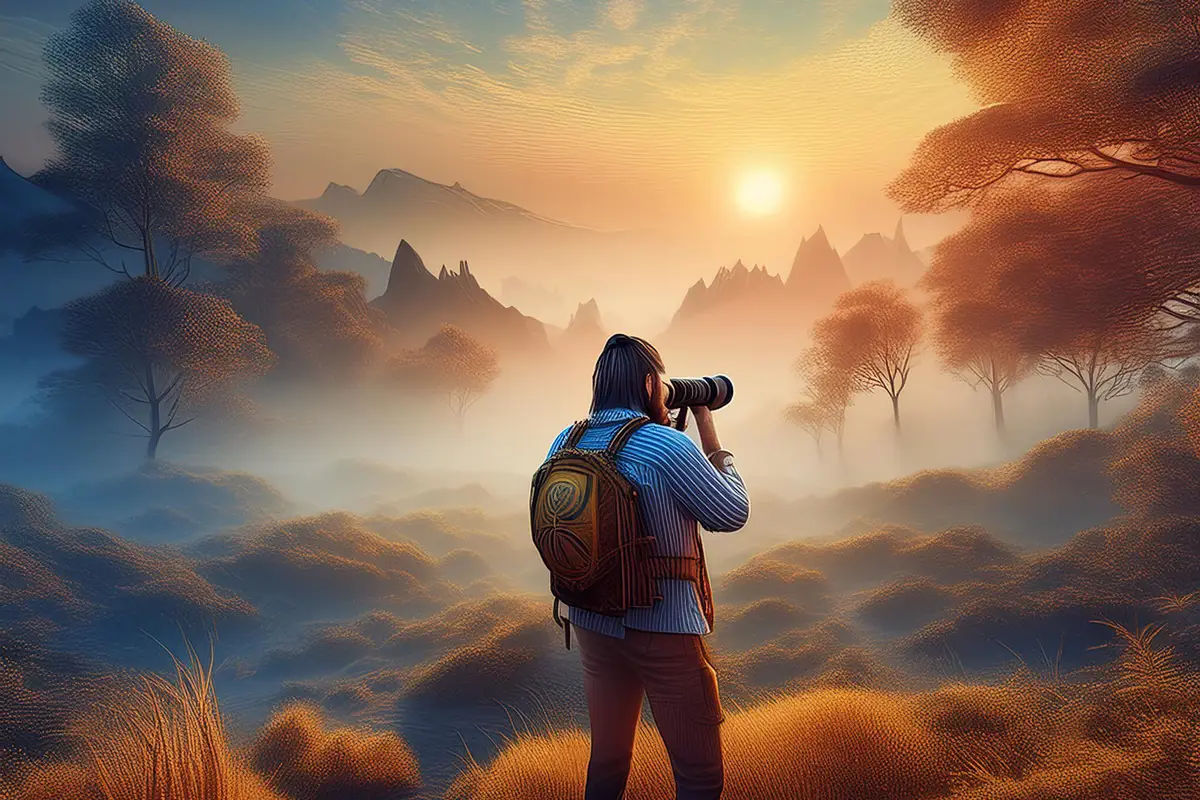In recent years, artificial intelligence (AI) has made remarkable strides across numerous industries, and the world of digital photography is no exception. From enhancing image quality to automating workflows, AI is revolutionizing the way photographers capture, edit, and share their work. As we look ahead, AI promises to further shape the future of photography in profound and exciting ways. Here are some of the most significant AI trends in digital photography today.
AI-Driven Image Enhancement and Editing
One of the most noticeable impacts of AI in digital photography is in the realm of image enhancement and editing. AI-powered tools now allow photographers to improve image quality with minimal effort. Programs like Adobe Photoshop and Lightroom have incorporated AI-driven features such as automatic exposure adjustments, noise reduction, and even advanced color grading. These tools analyze images and suggest or apply enhancements that were once the domain of skilled editors, saving photographers valuable time.
AI is also revolutionizing post-production through features like automatic object removal and background replacement. These tools not only improve workflow but also allow photographers to experiment with their images in ways that would have been challenging or impossible before.
AI for Image Recognition and Organization
As photographers capture thousands of images, organizing and finding specific photos can become overwhelming. AI-powered image recognition software is now capable of sorting and tagging photos automatically based on their content. Whether it's identifying faces, landscapes, or objects, AI can categorize images, making it easier for photographers to find the exact shot they need.
For example, Google Photos has leveraged AI to categorize and label photos by the people and objects within them. Similarly, professional tools like Adobe Lightroom use AI to provide image search capabilities based on content, such as "mountain" or "portrait," helping photographers manage vast photo libraries.
AI-Powered Cameras and Smartphones
AI is embedded into many of today’s advanced cameras and smartphones, improving the quality of photos without requiring professional expertise. Modern smartphones like the iPhone and Google Pixel are equipped with AI-driven features that optimize images in real-time. For instance, AI algorithms automatically adjust settings like exposure, white balance, and focus based on the scene, ensuring high-quality results even in challenging conditions.
Some high-end mirrorless and DSLR cameras also incorporate AI to enhance autofocus and object tracking. These cameras can identify and lock onto specific subjects (like a person's face or a moving object) with remarkable precision, allowing photographers to capture sharp images even in dynamic environments.
AI in Portrait Photography
AI’s application in portrait photography has grown rapidly, with several features designed specifically to enhance facial recognition, skin tone adjustments, and even posing. For example, AI can enhance portraiture by adjusting lighting to bring out the subject's features, or it can smooth skin without over-editing, making it look more natural.
Moreover, AI can analyze the facial structure of a subject and apply makeup, remove blemishes, or even adjust expressions in post-processing. While these tools are not meant to replace a photographer’s artistry, they provide powerful support for enhancing portraits in an efficient, seamless way.
AI and the Future of Creative Photography
AI is also pushing the boundaries of creative photography. Algorithms can now generate entirely new images, inspired by the style of specific photographers or artists. Tools like DeepArt and Runway ML allow photographers and artists to combine their images with AI-generated effects, creating new forms of art that blend traditional photography with digital techniques.
Additionally, AI is beginning to explore areas like 3D imaging, augmented reality, and virtual reality, creating immersive photographic experiences. As the technology advances, we may see a future where photographers and creatives can create fully interactive and three-dimensional photos that engage viewers in new, groundbreaking ways.
Conclusion
AI is reshaping the digital photography landscape in exciting ways, offering photographers new tools to enhance their work and streamline their processes. From image enhancement and organization to creative composition and real-time adjustments, AI is not just a trend—it's an essential part of the modern photography toolkit. As these technologies continue to evolve, the role of the photographer will shift, with AI providing unprecedented levels of support, enabling photographers to focus on their creative vision while leaving the technical challenges to the machines.
- Share:







Recent Comments